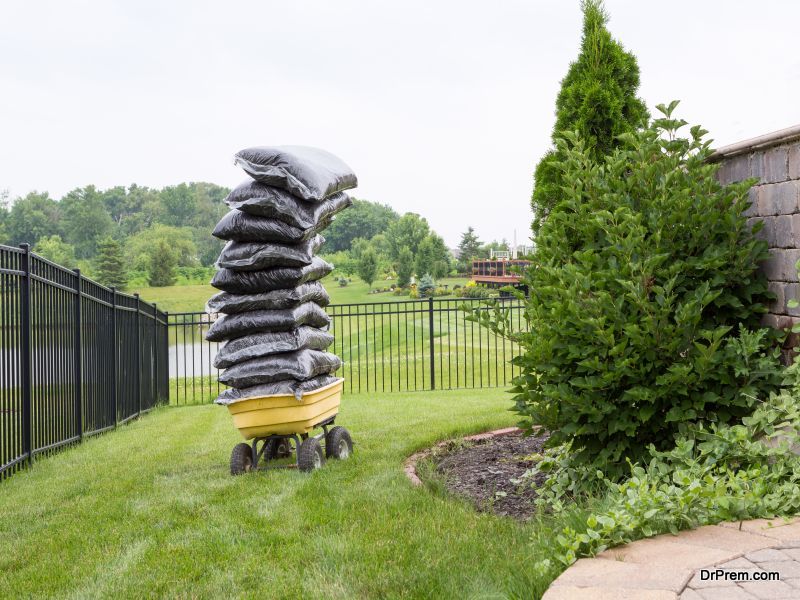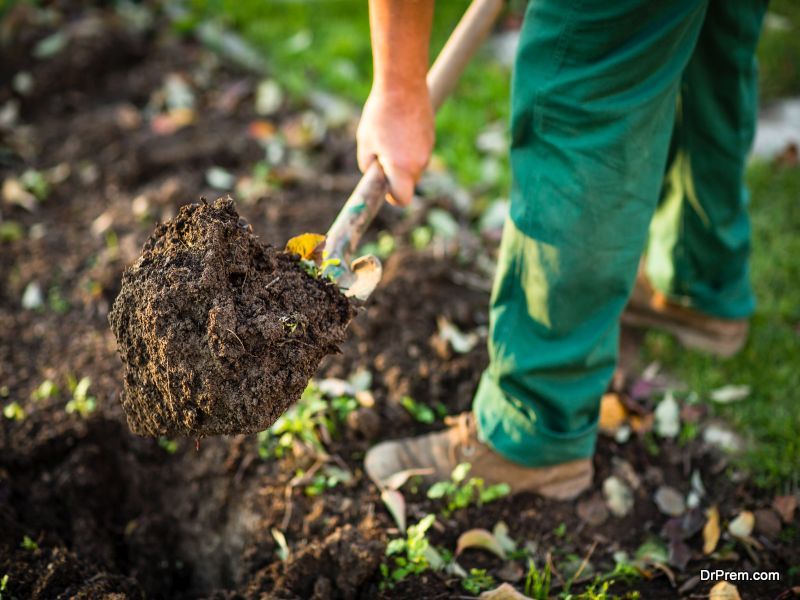Lawns and associated pests can vary a lot in different parts of the country. Besides that, lawn pests could include critters, mold, and invasive weeds. While different chemical pesticides may solve a specific problem, they may also cause some unintended consequences. To preserve your lawn and the environment, learn about aeco-friendlier approach to lawn care.
Eco-Friendly Pest Control Tips
As you explore different eco-friendly lawn care ideas and pest control by Ziehler Lawn Care, you can also find a page on the U.S. EPA website (https://www.epa.gov/safepestcontrol/lawn-and-garden) that provides a menu for more information. This website also suggests contacting local extension agents for more specific information about certain geographic areas that might require unusual measures because of the nature of common pests.
Most people have pretty typical lawns and share common problems. To help with these consider some tested and environmentally friendly lawn care tips.
Manual Weeding
 Sometimes, the old ways are the best ways. If you see large clumps or weeds or weak and diseased plants that aren’t weeds, it’s best to pull them out of the lawn and place them elsewhere. If left untended, these undesirable plants will only spread their problems around. It’s easier to just use chemicals, but it’s safer to take the time to pull out plants.
Sometimes, the old ways are the best ways. If you see large clumps or weeds or weak and diseased plants that aren’t weeds, it’s best to pull them out of the lawn and place them elsewhere. If left untended, these undesirable plants will only spread their problems around. It’s easier to just use chemicals, but it’s safer to take the time to pull out plants.
Minimize Pest Habitats
Overgrown and untended lawns provide perfect breeding grounds for such pests as insects, snakes, and rodents. One of the best natural solutions is to provide a less hospitable environment by keeping your lawn trimmed and landscaping as tidy as you possibly can.
Practice Natural Mowing
There is a cheaper and more natural kind of mulch you can use even though seaweed mulch was advised earlier. Instead of bagging up grass clippings, you can leave them on the ground to help provide food for the grass. You can also buy a mulching attachment for your mower, but just leaving clippings will also work pretty well and probably eliminate the need for natural fertilizer. To supplement clippings, you might also purchase dried and ground manure and spread it around in places on your lawn that need some extra care.
Consider Using Seaweed Mulch

You can find mulch made from seaweed at many garden stores. This natural product has a lot of desirable properties that can help preserve the lawn plants that you hope to keep healthy. For example, seaweed contains zinc, barium, magnesium, and other beneficial elements. In addition, this plant contains chemicals that repel garden slugs. In places, like on top of the actual grass, where mulch is not appropriate, you can also find a seaweed spray that will give you many of the same benefits.
Don’t Mow Too Often
Sure, you should not let your grass get out of control. If you do, it will be harder to cut later; and will provide a haven for unwanted pests in your yard. On the other hand, most experts suggest that you refrain from keeping your grass mowed too short as well. Leaving a bit of length will help shade the grown and discourage weed growth. A good rule of thumb is to mow when your grass is over three and one-half inches tall, but don’t cut it shorter than about two and one-half inches tall. Your lawn will still look neat, and you may also find that you don’t have to water it as much.
Get Rid Of Insect Mounds the Right Way
Instead of using potentially hazardous chemicals on insect mounds, you can use a simple and free method to get the colonies of fire ants and other critters to move along. Simply boil a pot of water on your stove in a tea kettle. Pour the steaming water over the mound. This will encourage your unwelcome squatters to leave as quickly as if their neighborhood just spouted an active volcano. In some cases, you may need to repeat this process the next day, but it works and usually works pretty fast.
Repel Ticks and Other Biting Insects Naturally

If you or your kids enjoy walking barefoot on the lawn, you will want to keep it free from ticks and other biting insects. At the same time, you probably don’t want to walk barefoot where you have just sprayed a lot of harsh chemicals either. A very cheap and natural solution consists of mixing a cup of water with one-half of a cup of white vinegar and two tablespoons of cooking oil. You can add this solution to a spray bottle and lightly mist your lawn. Even if you cannot smell this mixture, insects can smell it, and they don’t like it.
Evict Unwanted Mammals from Your Lawn
Field and house mice may take up residence in your yard. The problem is that they may get the idea that they want to move into your house too, so you will want to make sure they are unwelcome. The cheapest way to kill mice and other small rodents is to leave a few sprinkles of instant mashed potatoes around the yard. Mice will eat the flakes, but when the potatoes expand in their tummies, the mice will pass away. It seems cruel, but you never invited these guys to dinner in the first place.
If you’d rather deter rodents, a few sprinkles of used kitty litter also acts as a powerful deterrent. If you don’t have a cat, you’ve probably got a neighbor who will be happy to let you take used kitty litter away. Rodents will pick up the scent of the cat and look for a safer place to hang out.
Why Use Natural Pest Control On Lawns
Surely, chemical pest control works very well. The problem is that harsh chemicals may irritate skin and, in some cases,, even make people around your lawn more likely to get sick in the future. Also, the runoff from lawns gets into drains and sewers. Eventually, it ends up in the lakes and rivers that contain fish that people eat and the water that people drink. Natural pest control works, makes sense, and helps save money.
Article Submitted By Community Writer




